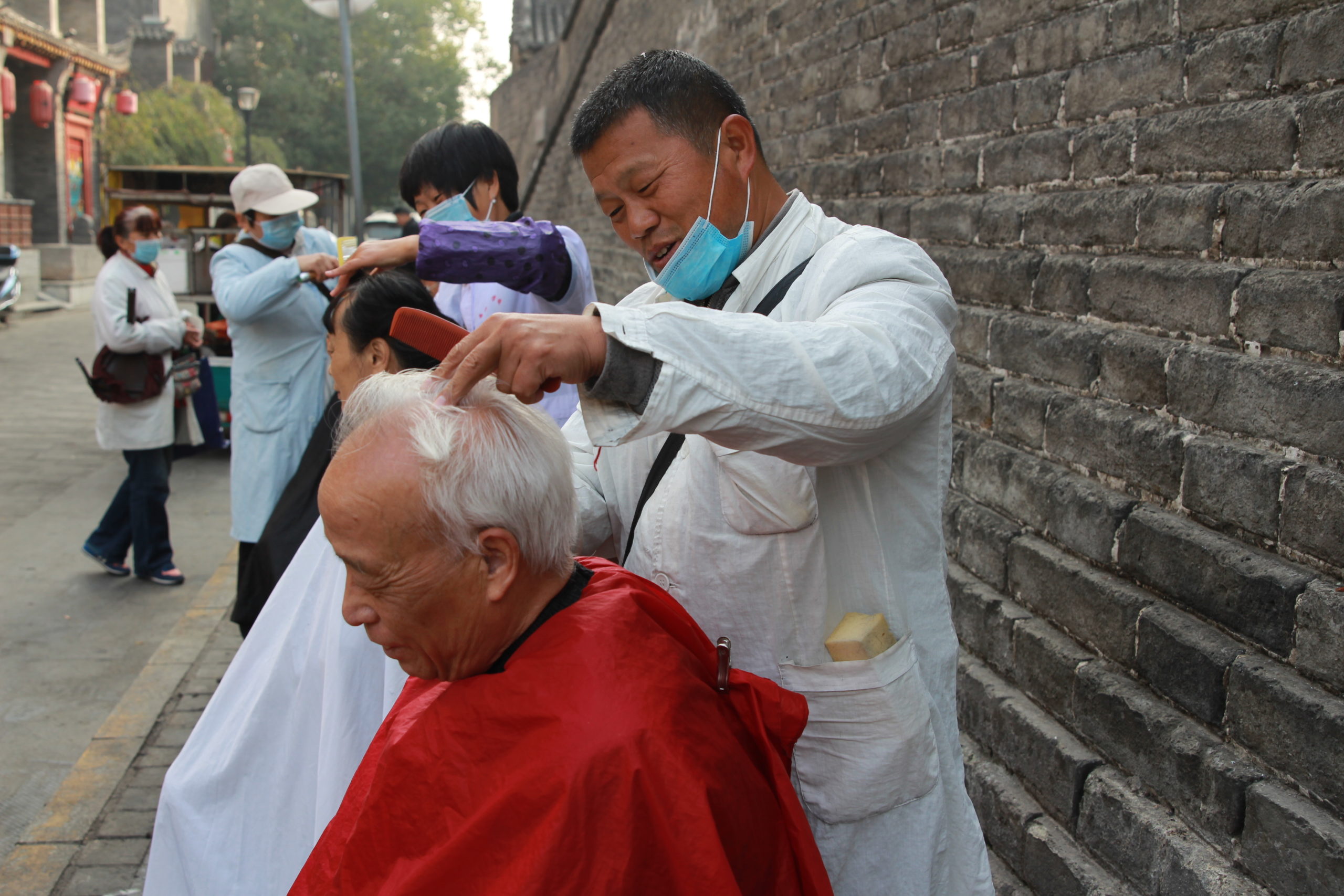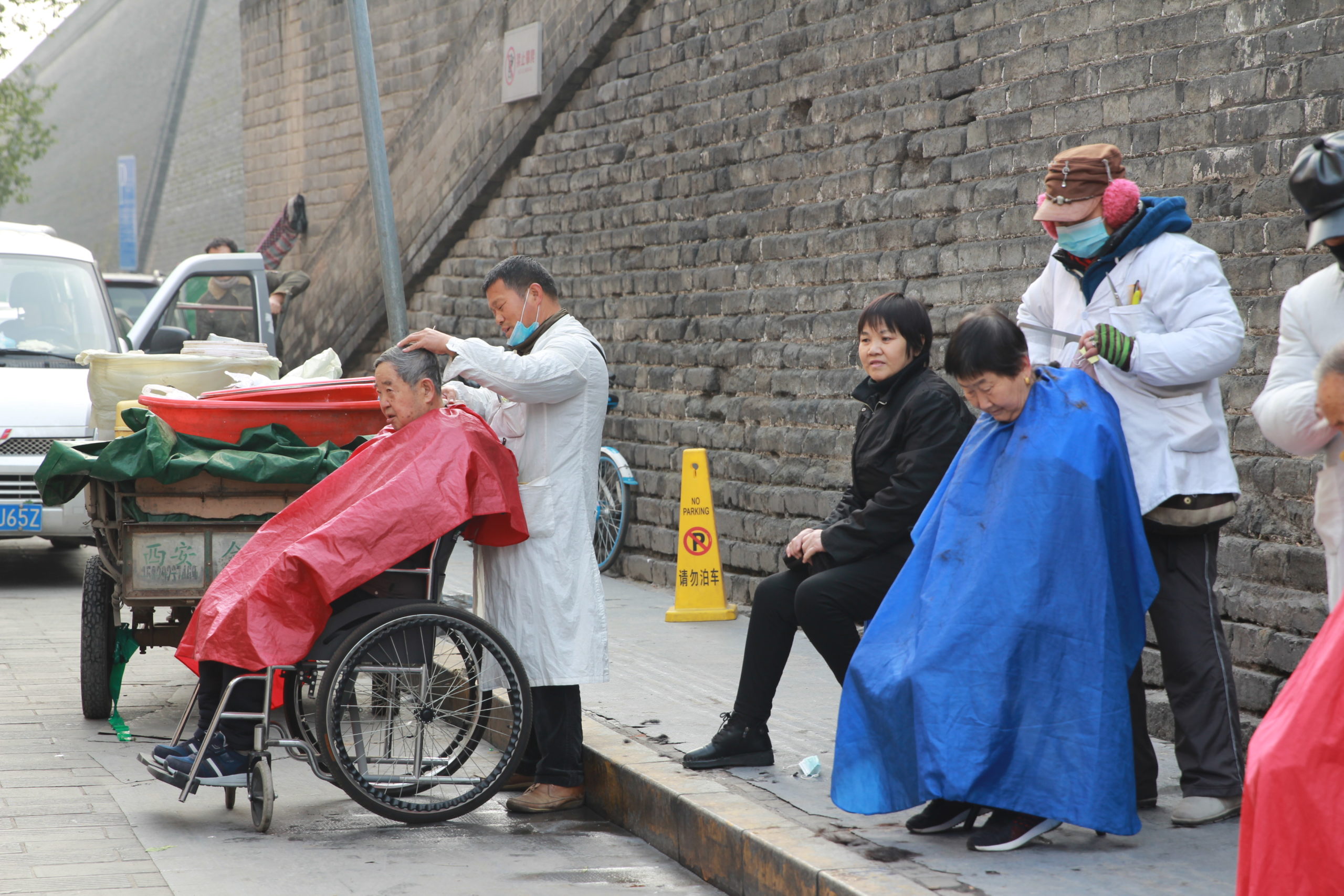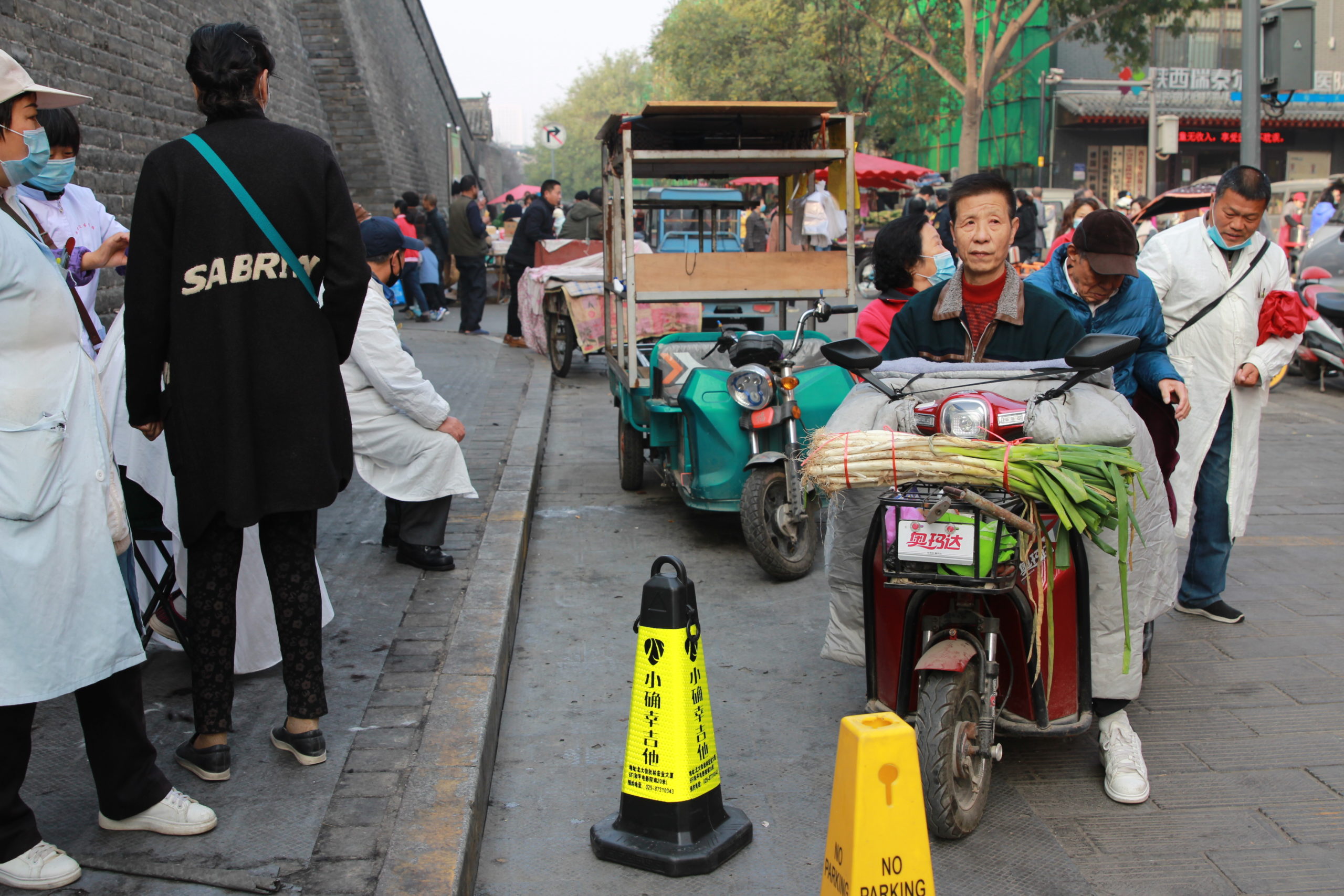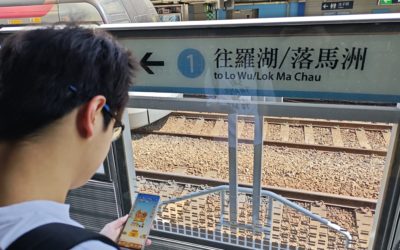Xi’an’s last remaining street barbers set up shop under the city wall
Simple, cheap outdoor haircuts nostalgic reminder of village life
By Zhang Simin
November 2020

Xi’an barber Sun Youliang, 56, carrying all his equipment in the pockets of his white smock and a black messenger bag, plastic stool in hand, stood by the roadside keeping a watchful eye on the “chengguan,” China’s controversial municipal police.
Once he confirmed the police, finishing their routine morning market patrol, didn’t feel like picking on him today, Sun went back to his post where his fellow street barbers, three middle-aged women and one man, sat spaced one meter away from each other.
“Three stools already, they took from me,” said Sun, putting one knee on his stool. “Sometimes it feels like a guerrilla war.”
Sun, tanned with a black buzz-cut hair, is short and stout. Underneath his white smock, he wears jeans and black trainers.
It’s no typical alley where these street barbers ply their craft. This one is right next to the Wumu Gate along Xi’an’s 600-hundred-year-old city wall. It’s not a main gate, so therefore not a tourist hotspot. But the cobbled streets where vendors huddle together selling everything from fresh produce to household items, people and cars filing through the arched gate and the 12-meter tall wall itself kissed by rays of morning sunshine, frame an enchanting, nostaligc scene of bustling city life.
But it’s not “the good old days” that the majority of customers come for, but rather the price. Where else can you get a haircut for 6 yuan (HK$7)?
Like the other barbers, Sun’s equipment is minimal: two pairs of scissors, a comb, and an electric shaver. Behind him, a straw broom rests against the antique bricks next to a plastic bag that collects the hair he’s cut off since this morning – black, grey, and white.
It’s a rare scene nowadays in China to see street barbers, though traditionally they operated on the streets before hair salons became popular. Most of their clientele consists of return customers, passers-by and the occasional tourist.
“I’ve got pictures of foreigners letting me cut their hair, from last year,” Sun told me. He’s a talkative, curious man. After learning that I live in Hong Kong, he commented that I must make a good living. “Maybe I could charge 10 yuan (HK$ 12) for a haircut there.”
Normally, Sun tackles around 10 heads a day, with an average daily income of about 100 yuan (HK$119).
He comes to his post every morning at 7am and packs up at sundown. He gives himself a lunch break at home because he lives within walking distance. The only interruption to his work is bad weather.
Sun is seasoned in the position. Starting an apprenticeship at 16, he has barber experience of more than 30 years. His first job was in a state-run barbershop. He didn’t work long there and soon after started his own business.
“At the time I hired two or three guys, ” he said.
About eight years ago he left the shop to his wife, who is also a barber and takes care of their grandson, and claimed a place under the wall.
“I shut down the barbershop finally last year, ” he said, adding that working on the street is more worry-free.
He smiles the whole time he talks, and always casts an eye over people passing by, searching for a potential client.
“Of course you need to try, observe those whose hair grows longer. If it still looks short then don’t bother,” he said.
Sun quickly spotted a middle-aged man and waved to him. “Wanna get a haircut ?” he called. The man didn’t respond but went straight to one of the female barbers, who already had four customers waiting their turn.
Then, finally came a customer- an elderly man in a tuk tuk. Sun stepped up to assist him out of the makeshift vehicle.
Sun wielded his scissors and combed the old man’s hair. It took him five minutes to get the task done. The man didn’t ask to check his hair in a mirror, even there even was one. Customers here don’t do such checks.
Next, Sun got another white-haired woman who seemed to have a prosthetic eye. Meanwhile, the barber next to Sun was still painstakingly trimming the hair of her same customer.
A well-dressed man who looked to be in his 60s was waiting for his wife to finish getting her haircut. He said his wife visits the same barber every time because she’s “skillful, patient and provides good service.”
“That guy,” he lowered his voice, referring to Sun, “is quite stubborn. Once I saw him quarrelling with a young man who wanted to pay him 5 yuan instead of 6.”
“We all have our own clientele,” the neighboring female barber said when she finally got a break.
As the vendors at the market began to pack up and the street got gradually quieter, two other barbers moved their stools nearer to the gate.
Sweeping the hair up on the ground, Sun said: “I am happy with my earnings. My 80 plus year-old parents are very healthy and can take care of themselves. I am working only for myself.”


The street barbers set up next to the Wumu Gate along Xi’an’s 600-hundred-year-old city wall. It’s a popular place for all kinds of vendors.
It’s not “the good old days” that the majority of customers come for, but rather the price.
Burned out Chinese teachers struggle with school responsibilities
It’s after 10pm and the city streetlights have long been on in southeastern China. Melisa returns home, exhaustion written on her face. All she wants is a shower
The unseen creators: how AI powers the mini-games becoming online hits in China
In three quick strokes, a blue-haired swordsman unleashes curved, shining blue blades for an attack that appears effortless as it takes down three masked opponents. Moments later, the swordsman stands still with a steely gaze and a calm face.
Loneliness drives new ‘accompanying economy’
Solo travelers hire “photo companions” for travel pics and conversation









